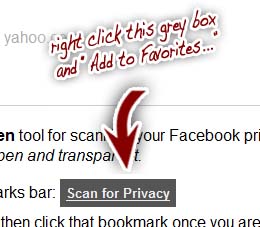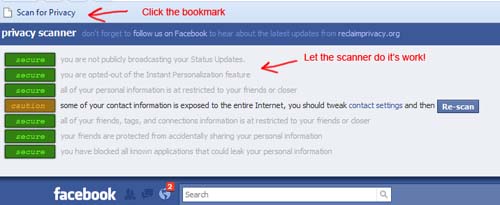USPS Insurance


As with most insurance deals, the odds are greatly stacked against you. I know this. You probably knew it. And yet, we've probably both agreed to buy insurance on shipped items at least once or twice... and why not? The insurance prices are fairly cheap are presented as being so straightforward: "Would you like to buy insurance?" they ask. "How much coverage do you want?" they ask. "Here's your receipt" they say.
But after eight months of dogging the USPS through their claim process, after being repeatedly ignored, then finally denied my claim, and appeal, and then dismissed by the Postal Regulatory Commission I came to understand that I had several critical misconceptions about USPS insurance. If you want to avoid a similar hassle, learn from my mistake: never buy USPS insurance again until you fully understand it (and probably not even then).

During my first... or maybe second appeal of their refusal to pay for my damaged goods, the USPS Consumer Relations Specialist wrote, "It's the consumer's legal and moral responsibility to read the receipt". Strange seeming advice I thought, but after a trip to the local post office and requesting to look at an insurance slip (I didn't have any on hand), I found out that there are detailed terms and conditions hiding on the back.
Well dang.
All that time... How could I possibly have missed the terms and conditions this long? As you know, every USPS employee diligently offers the insurance details before the purchase so you can review them before making he decision to buy.
Wait? They don't!? That's odd...
Well at least they're sure to tell you when they hand the insurance stub to you, "please read the terms of insurance on the back side". Or maybe they turned it over so that it's the first thing you see and simply say, "here are the terms, probably should read these".
Not that either? Strange...
What I have been told is that the insurance covers loss and damage and that's the basis under which I decided to purchase it. In my limited legal experience, an offer made followed by acceptance and exchange of consideration (money) makes a binding contract. Who knew that I was also "responsible" for examining anything they hand me in case there are modifying conditions printed somewhere?
Sadly, while there are plenty of pictures of the front of USPS insurance slips on their website, there are no pictures of the back to be found. So for your convenience, here's a copy of mine:

If you ever feel like USPS insurance might be a good idea, you probably out to think hard about what these requirements really mean:
1. Payout hijinks
The USPS only has to pay you whatever the deprecated value of your item is. The first thing you should be asking is, "how do they calculate deprecation"? Of course it's possible that they'd be fair and reasonable about it, but an even more important point to consider is this: Do you still have your original purchase receipt for the item?
You see, they can't calculate deprecation unless they know how much you paid for it. If you purchase items online or are very good about keeping copies of purchase receipts you may be fine, but most people don't keep receipts for most of the items they buy. Or worse, what if it was a gift? What if you bought it used or at a garage sale? Per item 3 of their required documentation for your claim, you are out of luck.
 If your lost or damaged items were purchased used or you no longer have the purchase receipt, your claim may be denied.
If your lost or damaged items were purchased used or you no longer have the purchase receipt, your claim may be denied.
2. Take pictures
Taking pictures of broken things does seem like common sense, but in this particular case since I was shipping these extremely long distance, I took pictures of the box contents before shipping as well.


But pictures aren't enough.
The USPS requires that you return the package to their offices for inspection including: "the damaged item, the mailing container, any wrapping/packaging, and all other contents that were in the package". But if you don't know about this requirement (written in bold on the insurance slip), you might unpack and throw away the box and shipping material like I did.
They say you have 60 days after the date of mailing to file, but unless you're willing to set the items aside and not use them or carefully catalog the contents and reconstruct them when you're ready to go down the post office, you're better off going right away... heck, open every box IN the post office if you can!
 Time is your enemy. For best results, open your packages immediately (at the post office if you can) and inspect everything for damage right away.
Time is your enemy. For best results, open your packages immediately (at the post office if you can) and inspect everything for damage right away.
3. More documentation
If you purchase postage and insurance online, you can print copies at any time for your claim, but if you buy it at the post office: be wary. You must have the original insurance slip to qualify for coverage. That means if you lose it or you think everything's fine and you throw it away before discovering the lost/damaged item, too bad.
Luckily, if the insurance sticker is still present on your package (and you didn't discard the box per point #2 above), then that counts as proof of insurance.
 The USPS doesn't keep computer records of post-office-purchased insurance. If you can't prove coverage, you lose it.
The USPS doesn't keep computer records of post-office-purchased insurance. If you can't prove coverage, you lose it.
4. No coverage for fragile items

Interestingly enough, DMM 609, "Filing Indemnity Claims for Loss or Damage" states that the USPS is exempt from paying insurance claims on anything where the "Fragile nature of article prevented its safe carriage in the mail, regardless of packaging". In other words, fragile items aren't valid for insurance. Period.
5. If you sign, you're out of time
Here's another gem: "Loss after items signed for by the addressee, the addressee’s agent, or delivery employee if authorized under the applicable standards". That means that if you sign for a package before carefully inspecting it for any possible damage, you have waived all rights to file a claim. A signature signs the death certificate for your insurance coverage.
6. And on, and on...
"Mail not bearing the complete names and addresses of the mailer and addressee, or is undeliverable as addressed to either the addressee or the mailer". Uh... does that count if you don't enter the full zip code? Because almost no one I know knows the full 11 digit zip code. What if the to/from information is damaged BY the USPS in transit? Does that invalidate the insurance too? After all, they don't keep to and from information in their computer systems so the only proof is on the package itself.
Here's one for the folks using expensive computer software: among the items excluded from coverage are: "software installed onto computers that have been lost or damaged". In other words, if your computer is lost or damaged, only the hardware itself is eligible for replacement.
Lastly, only superficial damage is covered: "No coverage is provided for... concealed damage". If your item's internal workings are damaged in shipping, but it looks pristine on the outside, it seems they can deny your claim.
In conclusion
If you want to buy insurance, more power to you, but even having dealt with a variety of insurance plans and programs through the years, I've never seen one this hard to use before. And I've certainly never encountered one where that claims they can hold you to terms and conditions that they never clearly provide. Buyer beware.
Tags: Insurance, Scams - Ripoffs - Dirty Tricks, USPS











